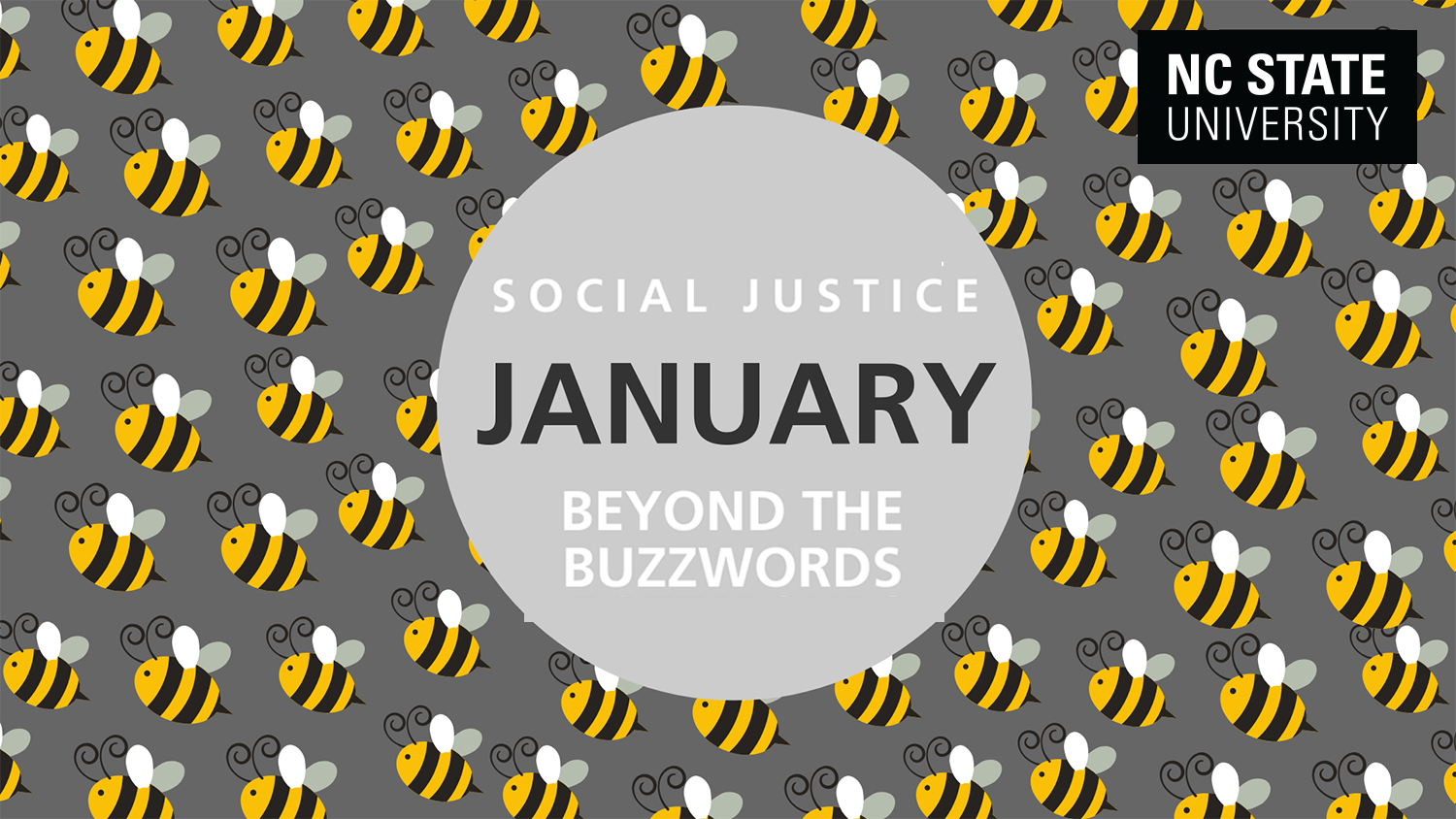
The Campus Community Centers (comprised of the African American Cultural Center, GLBT Center, Multicultural Student Affairs and the Women’s Center) will collaboratively host Social Justice January to engage students, faculty and staff in contemporary, intersectional social justice education. The event renews participants’ commitment to advocacy, reconnects them with important issues and enables them to gain skills for advancing social justice in our communities.
This year’s theme is “Beyond the Buzzwords.” A series of four unique sessions will dive into the concepts behind the buzzwords of diversity, privilege, intersectionality and oppression. Sessions are open to anyone but will be most beneficial to students involved in peer educator, mentor and other student leadership programs on campus. Even though each session will build on the others, it is not necessary for participants to attend earlier workshops to attend the later workshops. To create the best experience possible, pre-registration is requested.
Session 1: Unlearning Diversity
The first session, “Unlearning Diversity,” will introduce participants to the concept of socialization; how biases, stereotypes and other cultural narratives are constructed; and how they impact leadership and other aspects of campus life. Join Marcela Torres-Cervantes, assistant director for community outreach and engagement in Multicultural Student Affairs from 11:30 a.m. – 1:00 p.m. in Witherspoon Student Center, Room 356 (located inside the African American Cultural Center).
Session 2: Unpacking Privilege
The second session, “Unpacking Privilege,” an opportunity for participants to take stock of their own identities and how those facets of identity impact daily life. In this session, participants will critically reflect on times they have received privilege or experienced oppression due to an aspect of their identity. The session will end with a discussion of how participants can utilize their privileges to advance social justice and create a better campus culture. Please join Sachelle Ford, assistant director of the African American Cultural Center, from 1:30 – 3:00 p.m. in the GLBT Center, Talley Student Union, Suite 5230.
Session 3: Conversations About “The Other”
The third session, “Conversations About ‘The Other’,” will explore the ways marginalized communities are represented in the media. Participants will discuss how media representation allows for bias, mistreatment and prejudice in our community, how those narratives shape assumptions, attitudes and actions, and the ways that these combine to perpetuate oppression. Join Andy DeRoin, program coordinator for the GLBT Center, from 3:30-5:00 p.m. in the Women’s Center, Talley Student Union, Suite 5210.
Session 4: Immunity to Change
The final session, “Immunity to Change”, will dive into how we can make change as social justice advocates. What are the changes we want to make within ourselves to be better advocates or allies? How do we change our own individual beliefs, along with the collective mindsets of our communities, to effectively make change? In this workshop we move past desire and motivation to the tools we need to overcome the forces that hold us back from making change. Join Carlyn Wright-Eakes, rape prevention education coordinator for the Women’s Center, from 5:30-7:00 p.m. in Multicultural Student Affairs, Talley Student Union, Suite 4261. Faculty and staff are encouraged to attend to engage in dialogue and conversation with student leaders and peer educators in this culminating workshop.
Lunch and Learn: Equity, Data, Research and Practice
The GLBT Advocate Program will host a lunch and learn from 12:00-1:00 p.m. in Talley Student Union, Room 4280. This concurrent event may be most beneficial to faculty and staff who are ready to engage in deeper conversations about social justice issues at NC State. Erin Elliot, graduate assistant in Multicultural Student Affairs, will facilitate as audience members engage in a higher-level conversation about equity, data collection, research and practice in higher education.
- Register online for the Social Justice January sessions.